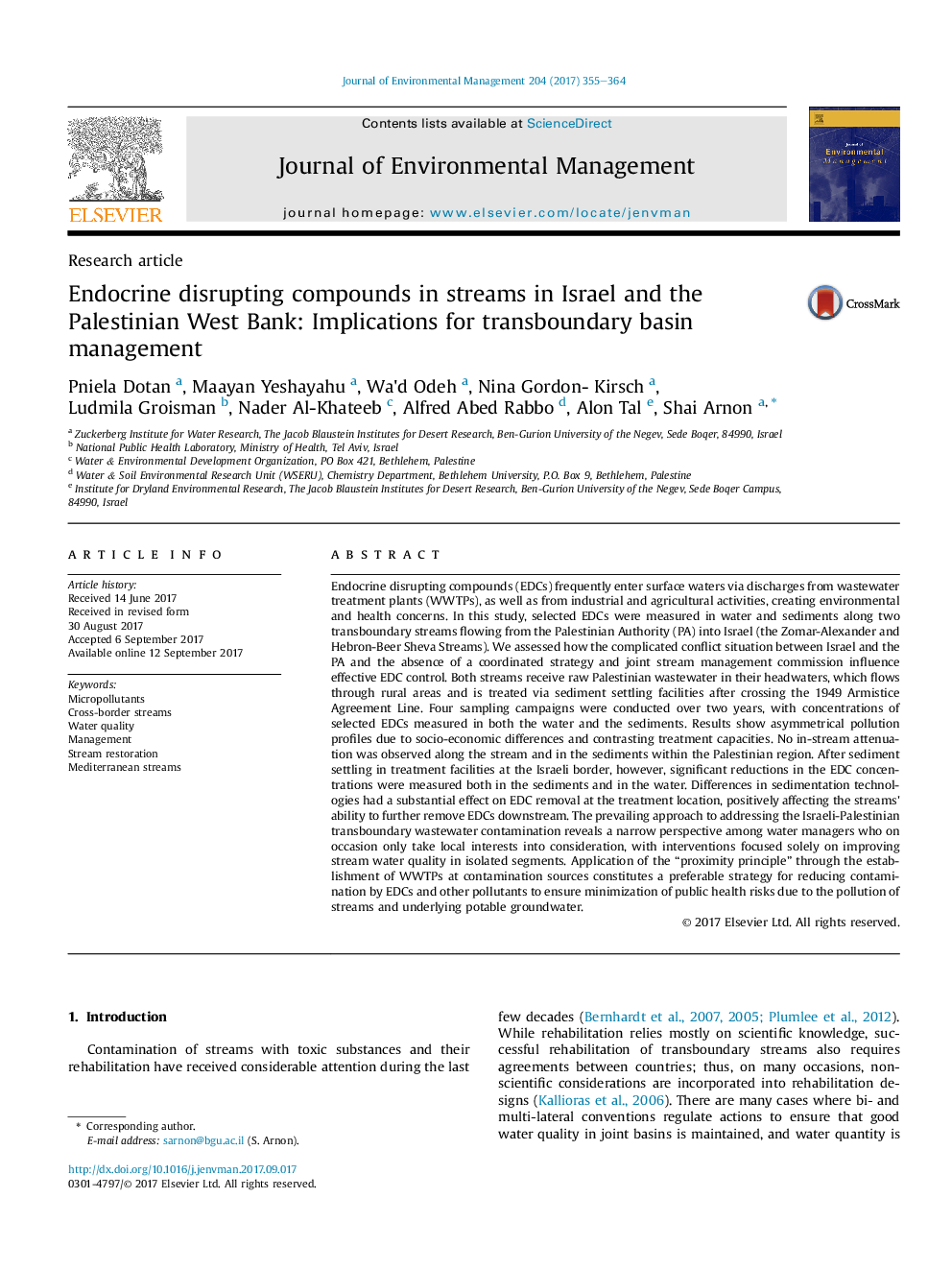| کد مقاله | کد نشریه | سال انتشار | مقاله انگلیسی | نسخه تمام متن |
|---|---|---|---|---|
| 5116273 | 1378093 | 2017 | 10 صفحه PDF | دانلود رایگان |
- Transboundary streams between Israel and the PA are contaminated by various EDCs.
- No in-stream attenuation was observed in the Palestinian segments.
- Sediment removal improved the in-stream attenuation of Israeli stream segments.
- Water quality deterioration is expected to continue without cooperative action.
- Sustainable wastewater management requires application of the “proximity principle”.
Endocrine disrupting compounds (EDCs) frequently enter surface waters via discharges from wastewater treatment plants (WWTPs), as well as from industrial and agricultural activities, creating environmental and health concerns. In this study, selected EDCs were measured in water and sediments along two transboundary streams flowing from the Palestinian Authority (PA) into Israel (the Zomar-Alexander and Hebron-Beer Sheva Streams). We assessed how the complicated conflict situation between Israel and the PA and the absence of a coordinated strategy and joint stream management commission influence effective EDC control. Both streams receive raw Palestinian wastewater in their headwaters, which flows through rural areas and is treated via sediment settling facilities after crossing the 1949 Armistice Agreement Line. Four sampling campaigns were conducted over two years, with concentrations of selected EDCs measured in both the water and the sediments. Results show asymmetrical pollution profiles due to socio-economic differences and contrasting treatment capacities. No in-stream attenuation was observed along the stream and in the sediments within the Palestinian region. After sediment settling in treatment facilities at the Israeli border, however, significant reductions in the EDC concentrations were measured both in the sediments and in the water. Differences in sedimentation technologies had a substantial effect on EDC removal at the treatment location, positively affecting the streams' ability to further remove EDCs downstream. The prevailing approach to addressing the Israeli-Palestinian transboundary wastewater contamination reveals a narrow perspective among water managers who on occasion only take local interests into consideration, with interventions focused solely on improving stream water quality in isolated segments. Application of the “proximity principle” through the establishment of WWTPs at contamination sources constitutes a preferable strategy for reducing contamination by EDCs and other pollutants to ensure minimization of public health risks due to the pollution of streams and underlying potable groundwater.
Journal: Journal of Environmental Management - Volume 204, Part 1, 15 December 2017, Pages 355-364
